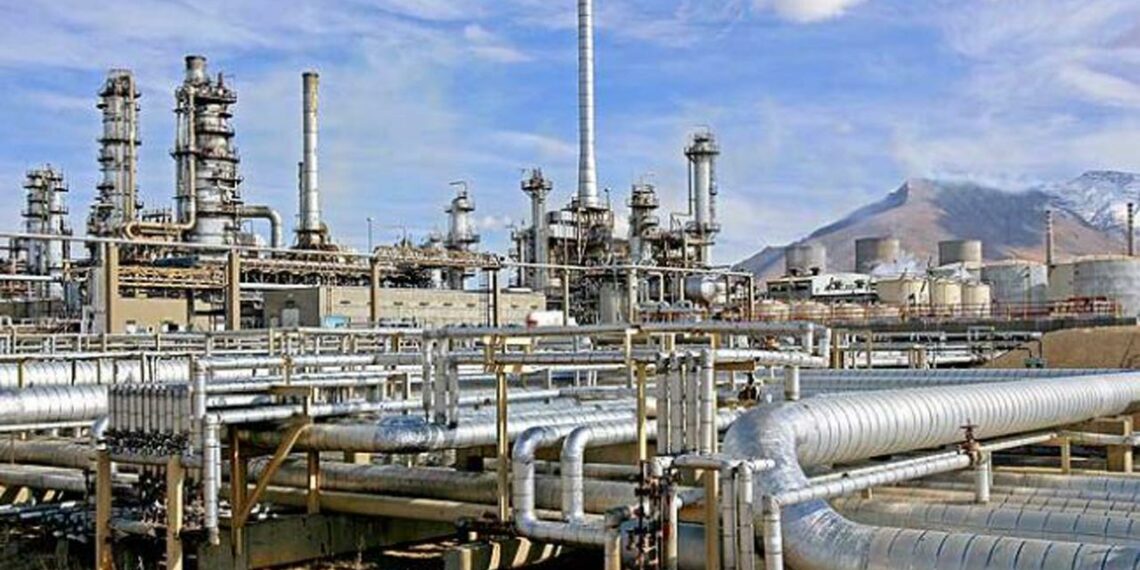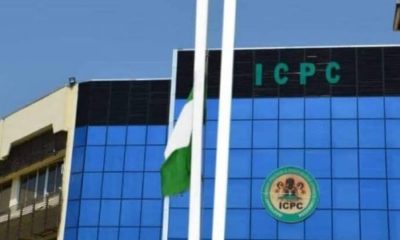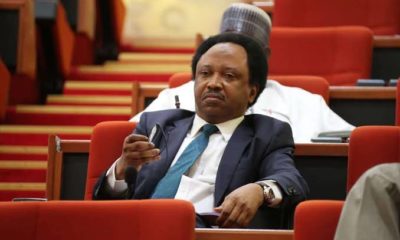Oil
Nigeria’s Oil Industry Plagued By Mismanagement, Corruption: Billions Lost In Inefficient Practices

The Nigerian government has been pumping money into its refineries in an effort to revive the facilities that have been running at a loss for years.
However, stakeholders are increasingly of the view that this strategy is not sustainable and that the government needs to invest in new refineries instead.
Nigeria has three refineries – in Kaduna, Port Harcourt and Warri – that have a combined capacity of 445,000 barrels per day (bpd).
In August 2021, the Nigerian government announced a total spending of $6.46 billion, which is approximately N2.68 trillion, for the rehabilitation of three refineries and a 20% stake in the Dangote Refinery project.
The rehabilitation will be carried out on the Port Harcourt (old and new) refinery, the Warri refinery, and the Kaduna refinery
Dangote refinery is a massive oil refinery and petrochemical project currently under construction in the Lekki Free Zone, near Lagos, Nigeria. The refinery is expected to become the largest oil refinery in Africa, as well as the world’s biggest single-train facility.
The refinery is designed to process a range of light and medium grades of crude oil, producing clean fuels such as gasoline, diesel, jet fuel, and polypropylene. The Nigeria-based Dangote Group is developing the project, with an estimated investment of $19 billion.
To aid in the project’s development, Nigeria’s Federal Executive Council (FEC) granted approval for the state-owned Nigerian National Petroleum Corporation (NNPC) to acquire a 20% minority stake in the project for $2.76 billion in August 2021.
According to a tweet from the Nigerian Midstream and Downstream Petroleum Regulatory Authority (NMDPRA), in October 2022, the Dangote Refinery project has reached 97 percent completion. The announcement was made during the authority’s reception of the company’s 2022/2023 work plan.
The NMDPRA further stated that the plan revealed that the project is in its advanced stages.
According to the federal Govt, the Port Harcourt refinery rehabilitation will cost $1.5 billion (N622.9 billion), the Warri refinery will cost $900 million (N373.8 billion), and the Kaduna refinery will cost $1.3 billion (N540 billion).
The Minister of State for Petroleum Resources, Timipre Sylva, in April 2022, stated that the rehabilitation work for the old Port Harcourt refinery would be completed by April 2023.
Once completed, the refinery will be able to refine 60,000 barrels per stream day (bpsd) of crude, although the entire complex has a capacity of 210,000 bpsd.
With April 2023 ended, there has been no record of the rehabilitation neither is there an account of how the money was spent so far.
Moreover, an analysis of the petrol subsidy fund, which is aimed at keeping the pump price of petrol low, revealed that between 2015 and 2021, at least N3.902 trillion was spent subsidizing petrol.
While there was no record of spending in 2016, N2.329 trillion was spent between 2015 and 2020, and N1.573 trillion was spent in 2021.
With the billions of dollars spent on rehabilitating the refineries in the past, there have been report of little to no success in all expenses.
Findings revealed that the $1.5 billion earmarked for the rehabilitation of the Port Harcourt refinery alone is higher than the total capital allocation to the health sector by successive governments from 2009 to 2018.
Also, the Nigeria’s spending on refinery maintenance is three times higher than the entire budgetary allocation to education between 2009 and 2018.
This has led to calls for the government to invest in new refineries instead of throwing money at dead facilities.
Energy experts have noted that Nigeria would be better off building new refineries instead of rehabilitating old ones that have been running at a loss for years.
According to Madaki Ameh, an energy expert, the $1.5 billion allocated for the rehabilitation of the Port Harcourt refinery is too much, and that the government could build a new refinery for the same amount.
“That contract is too much. You don’t need that amount of money to turn around a refinery anywhere in the world. I prefer that we build a new one,” he said.
The Group Chairman/CEO of International Energy Services Limited, Dr. Diran Fawibe, warned that without a comprehensive rehabilitation and audit, the $1.5 billion earmarked for the Port Harcourt refinery was a misplaced priority.
He called for proper rehabilitation and auditing of the entire facility to ensure that its liability remains minimal.
This has raised concerns about the misappropriation of funds meant for TAM (Turnaround Maintenance) by public officials. Several probes have been conducted by the National Assembly to investigate the mismanagement of funds meant for the maintenance of the refineries.
In May 2022, the Socio-Economic Rights and Accountability Project (SERAP) sued the President Muhammadu Buhari-led administration over the alleged failure to probe the N1.48 trillion ($3.6 billion) spent on maintaining the country’s four refineries between 2015 and 2020.
The funds are believed to have been stolen, mismanaged or diverted into private pockets. Despite the huge spending, the refineries are still not working, and fuel scarcity persists.
In the suit filed at the Federal High Court, Lagos, with the number FHC/L/CS/806/2022, SERAP is seeking “an order of mandamus to direct and compel President Buhari to investigate the spending on Nigeria’s refineries, and alleged mismanagement of public funds budgeted for maintaining the refineries since 1999.”
The high cost of importing refined products has had a significant impact on the Nigerian economy.
The Minister of Finance, Budget and National Planning, Mrs Zainab Ahmed, has revealed that the nation spends about N250 billion ($611 million) monthly to subsidize the importation of petrol into the country because all the nation’s three refineries are down.
According to her, the subsidy cost per liter ranges between N350 ($0.85) and N400 ($0.98). These funds could have been used to bridge the infrastructural deficit in Nigeria, but instead, they are being spent on fuel subsidies.
According to a report by the African Refiners Association, new refineries are being built in Africa at a cost of $6-10 billion for facilities with a capacity of 200,000-400,000 bpd.
With the $26.5 billion that the government has so far spent on the maintenance of the refineries, it could have built three new refineries of the same size.
According to findings by Biztellers, One of such refinery projects in the United States was the construction of the Motiva Port Arthur Refinery in Texas, which was completed in 2012.
The project was a joint venture between Royal Dutch Shell and Saudi Aramco, and it is one of the largest refineries in the world, with a processing capacity of 607,000 barrels per day. The total cost of the project was estimated to be around $10 billion.
Another example of a refinery project in the United States is the expansion of the Marathon Petroleum refinery in Garyville, Louisiana.
The project, which was completed in 2010, involved adding a new crude oil unit and expanding existing units, and it increased the refinery’s processing capacity to 436,000 barrels per day. The total cost of the project was approximately $3.9 billion.
Whereas Nigeria has spent more on repairing damaged refineries which has not been able to refine a single liter of oil.
Instead of securing a loan to build new refineries for the country, Early April, the federal government announced an 800 million dollar loan for subsidy removal which will be repaid in 25 years.
Following the proposed removal of the fuel subsidy, NLC and TUC expressed their opposition so far.
In April 2nd 2023, the Nigeria Labour Congress (NLC) and the Trade Union Congress (TUC) announced their conditional support for the removal of fuel subsidy in Nigeria.
The two labor bodies specified that they would only agree to the subsidy removal if the incoming administration led by Bola Tinubu takes concrete actions towards repairing and revitalizing the government refineries situated across the country, and also allows the establishment of modular refineries.
If the incoming administration fails to implement these measures, the NLC and TUC declared that they would resist the removal of subsidy and mobilize workers to stage protests against the decision.
According to the NLC and TUC, repairing and revitalizing government refineries and establishing modular refineries would increase local refining capacity, reduce fuel importation, and stabilize the price of petrol in the country.
However, The National Economic Council (NEC) have suspended the planned removal of fuel subsidy on petroleum products.
The decision was made during the valedictory Council meeting presided over by Vice President Yemi Osinbajo at the Presidential Villa, Abuja.
According to the Minister of Finance, Budget and National Planning, Zainab Ahmed, the council deliberated on the matter and agreed that the fuel subsidy cannot be removed for now.
However, the council also agreed to continue discussing the matter and to carry out necessary preparatory work in conjunction with states and representatives of the incoming administration.
She said “Council agreed that the timing of the removal of fuel subsidy should not be now. But that we should continue with all of the preparatory works that need to be done and that this preparatory has to be done in consultation with the states and other key stakeholders including representatives of the incoming administration.
With the debt increasing rapidly, more is expected to be borrowed by the incoming Tinubu administration.
In January, Patience Oniha, the Director-General of the Debt Management Office (DMO), announced that Nigeria’s total debt increase to N44.06 trillion as of September 2022.
Oil
NNPC Discovers Over 4,800 Illegal Pipeline Connections

The Nigerian National Petroleum Company (NNPC) Limited has revealed the detection of more than 4,800 unauthorized connections on oil pipelines within the country, painting a troubling image of the nation’s primary source of revenue.
Mele Kyari, the Group Chief Executive Officer of NNPC Ltd, communicated this information to the Senate Committee on Appropriations last Friday.
He said, “We have over 4,800 illegal connections on our pipelines. That means in some lines, within 100 kilometres of pipelines, you have as much as 300 insertions.
“Therefore, even when you produce the oil, you cannot deliver them at the required pressure and therefore the volume will also be less.”
As per the NNPC Ltd chief, individuals from various regions enter the Niger Delta, inserting unauthorized connections on pipelines in Nigeria’s oil-producing area.
This recent revelation follows a prior discovery of 295 illegal connections to the pipelines by the firm a year ago, underscoring the escalating issue of crude oil theft in Nigeria.
Two years earlier, Kyari had highlighted the country’s daily loss of 200,000 barrels of oil, amounting to $13 million due to theft and vandalism.
He further stated “We have two sets of losses, one coming from our products and the other coming from crude oil. In terms of crude losses, it is still going on. On the average, we are losing 200,000 barrels of crude every day.”
After the discovery, Nigeria’s security forces pledged to enhance security around the country’s pipelines.
To bolster this, the Federal Government granted a multi-billion naira pipelines surveillance contract to Tantita Security Services, headed by former militant leader Government Ekpemepulo, also known as Tompolo.
Despite facing criticism for this decision, Senator Heineken Lokpobiri, the Minister of State for Petroleum, remains convinced that it was the appropriate course of action.
In August, following a tour of oil facilities in the Niger Delta, Senator Heineken Lokpobiri expressed gratitude to Tantita, commissioned by NNPC Ltd, for their ongoing work.
He also hinted at plans for further extensive endeavors in the future.
In 2021, after extensive debate and delays, the Petroleum Industry Bill was finally passed to attract increased foreign investment into the oil sector through amendments to regulations, royalties, and taxes.
Oil
Dangote Refinery Set To Begin Fuel Production With First Crude Arrival

Nigeria’s colossal $19 billion Dangote Refinery, after encountering several setbacks, is on the verge of kickstarting fuel production.
This achievement is heralded by the arrival of the first crude shipment, transported by the OTIS tanker carrying 950,000 barrels of Nigeria’s Agbami crude.
S&P Global, citing industry sources and tanker tracking data on spglobal.com, reported the tanker’s departure on December 6, en route to Lekki, the nearest land port to Dangote’s offshore crude receiving terminal.
Scheduled to reach its destination around 8 PM on December 7, the arrival of this shipment signifies the commencement of crude supplies for the refinery’s operations.
Chartered by the state-owned Nigerian National Petroleum Company (NNPC), the Suezmax tanker is an emblem of the initial crude supply to Dangote’s cutting-edge refinery, as disclosed by a West African oil trader familiar with the matter in the S&P report.
Even though the refinery was officially completed in May, the absence of domestic crude feedstock had hindered oil product manufacturing.
To address this, the NNPC, holding a 20% stake in the refinery, struck an agreement to provide 6 million barrels of crude oil as feedstock to the Dangote refinery in December.
This move aims to jumpstart operations and overcome the previous impediments.
Agbami, operated by Chevron, holds a prominent position among Nigeria’s major deepwater developments, producing around 100,000 barrels per day in the central Niger Delta.
Known for its light sweet crude qualities, with a specific gravity of 47.9 API and a low sulfur content of 0.04%, Agbami produces substantial amounts of naphtha and kerosene.
NNPC has chartered additional shipments from different Nigerian offshore fields to the refinery, marking the start of a sequence of planned crude supplies for the month, as mentioned by the oil trader.
Located on the outskirts of Lagos, Nigeria’s commercial hub, the Dangote Refinery encountered repeated delays since its 2013 announcement, despite significant installation progress in 2019.
The refinery, designed to handle multiple crudes simultaneously, targets three Nigerian crude grades—Escravos, Bonny Light, and Forcados. When operating at full capacity, it aims to produce 327,000 barrels per day (b/d) of gasoline, 244,000 b/d of gasoil/diesel, 56,000 b/d of jet fuel/kerosene, and 290,000 metric tons per year of propane/LPG.
Dangote’s operations starting signify Nigeria’s hopes to lessen its reliance on gasoline imports, addressing the deficiencies of its existing refineries undergoing repairs. This shift is poised to reshape Nigeria’s oil industry, potentially leading to gasoline self-sufficiency by the 2040s.
Dangote officials anticipate an initial output of 370,000 barrels per day (b/d), emphasizing jet fuel and diesel production.
Industry analysts, however, project the refinery to reach its full operational capacity by mid-2025, although potential delays remain a looming concern.
Oil
NNPCL Sets Dec 2024 Terminal Date For Fuel Importation

The Nigerian National Petroleum Company Limited (NNPCL) has announced intentions to cease importing refined petroleum products by December 2024, anticipating full operational functionality for all national refineries by that time.
Group CEO, NNPC Ltd, Mele Kyari, shared this at a meeting with Speaker Tajudeen Abbas of the House of Representatives, who advocated for the privatisation of Nigeria’s refineries on Thursday.
Projections indicated the national oil firm’s revenue could climb to N4.5 trillion by the conclusion of 2023. Moreover, the rehabilitation of the Port Harcourt Refining Company, managed by NNPCL, was slated for completion by December of the current year.
Meanwhile, Oil marketers verified on Thursday that the Port Harcourt refinery is set for operations, potentially starting in January 2024. They emphasized that once operational, this refinery could notably reduce the prices of refined petroleum products.
During the meeting in Abuja, Kyari asserted Nigeria’s intention to cease importing refined petroleum products by 2024, envisioning the country’s emergence as a net exporter of these commodities within the same year.
He outlined the plans for launching operations at the Port Harcourt, Warri, and Kaduna refineries.
Kyari reiterated that all refineries would operate at full capacity, ultimately paving the way for Nigeria to transition into a net exporter of petroleum products by the conclusion of 2024.
He attributed the inactivity of Nigeria’s refineries over the years to the petroleum subsidy, emphasizing that the removal of this subsidy was drawing significant private-sector investments into the sector.
Kyari said “I can confirm to you that by the end of December this year, we will start the Port Harcourt refinery; early in the first quarter of 2024, we will start the Warri refinery and by the end of 2024, Kaduna refinery will come into operation.
“This is the commitment we are giving today and you can hold us accountable for this. In 2024, many of the initiatives including the rehabilitation of our refineries and also the efforts of small-scale refineries, and the upcoming Dangote refinery, will make Nigeria a net exporter of petroleum products in 2024.
“We will no longer be talking about fuel importation by the end of 2024. I am very optimistic that this will crystallise.
Kyari promised that by the conclusion of 2023, the government’s anticipated revenue from the company would reach N4.5 trillion, emphasizing NNPCL’s adherence to the Petroleum Industry Act and its commitment to delivering value to shareholders.
Recall that in October 2023, it was reported that Nigeria’s monthly spending on the importation of Premium Motor Spirit, known as petrol, had reached approximately N843 billion due to NNPCL’s cessation of oil swaps.
In July of this year, the Nigerian Midstream and Downstream Petroleum Regulatory Authority reported that during the post-deregulation period, spanning June 1 to June 28, 2023, the country’s total petrol consumption amounted to 1.36 billion litres, with an average daily consumption of 48.43 million litres.
The average ex-depot price of petrol, sourced solely from NNPCL as the importer, stands at about N580 per litre.
However, both NNPCL and oil marketers declared on Thursday that this substantial oil import expenditure would soon diminish.
They anticipated a drop once the Port Harcourt refinery commences production of refined petroleum products from January 2024, barring any unforeseen circumstances.





















